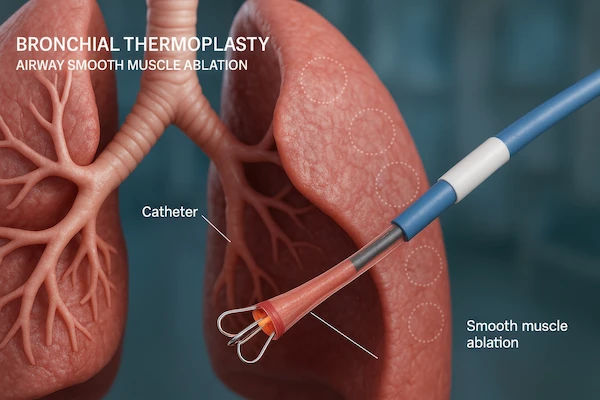- female
- 35 Years
- 22/01/2025
I'm a bit worried because last week I started having watery eyes and sneezing, but no cough at that time. The sneezing and watery eyes stopped a couple of days ago, and now I've developed a cough. The thing is, it's not like a regular coughit's neither wet nor dry, and it doesnt happen all the time. My oxygen levels are usually around 98, but they've dropped to 96, 97, and 96. When I lie down, it even goes to 93, 94, and 95. Should I consider getting an X-ray? Also, I have a history of GERD problems. What do you suggest?
Answered by 1 Apollo Doctors
Azeflo nasal spray is advised for 7 days ,7ml in both the nostrils.Also tab pan d orally,before food for 14 days and syrup sucralfate 10 ml thrice daily for 14 days is advised to the patient.
Dr. Mubarak Suggests...
Consult a Pulmonology Respiratory Medicine Specialist
Answered 04/07/2025
0
0

More Pulmonology/ Respiratory Medicine Health Queries
View allI've been dealing with asthma and using a Foracort inhaler, but recently I've been having a lot of issues with a runny nose and lots of sneezing. I'm not sure if this might be rhinitis or not. What do you think, and could you suggest some medication that might help with the runny nose?
Xylometazoline drops
Answered by 1 Apollo Doctors
I recently got my chest x-ray report and it mentions some unclear haziness in the left cardiophrenic angle region and a prominent epicardiac fat pad, along with patchy infiltration. The rest of the lung fields look clear, and the cardio thoracic ratio is normal. But it also mentions that both hila are prominent and my bony thorax shows no significant abnormality. The domes of my diaphragm are well outlined. Theyve advised clinical correlation and I'm not entirely sure what all this means. Should I be worried about these findings, especially the haziness and the prominent hila? What steps should I take next?
Thats unusual,visit General Physician for appropriate approach.and maintain balanced diet and healthy lifestyle
Answered by 1 Apollo Doctors
I've recently started experiencing some shortness of breath out of nowhere, and it made me decide to stop smoking. For a week or so after quitting, I felt fine and didn't have any breathing issues. But now, in the second week, the shortness of breath has come back suddenly. Could you shed some light on why this might be happening? Also, are there any home remedies I could try to help with this?
first do one chest xray and then consult a pulmonologist
Answered by 1 Apollo Doctors
Disclaimer: Answers on Apollo 247 are not intended to replace your doctor advice. Always seek help of a professional doctor in case of an medical emergency or ailment.





.webp)